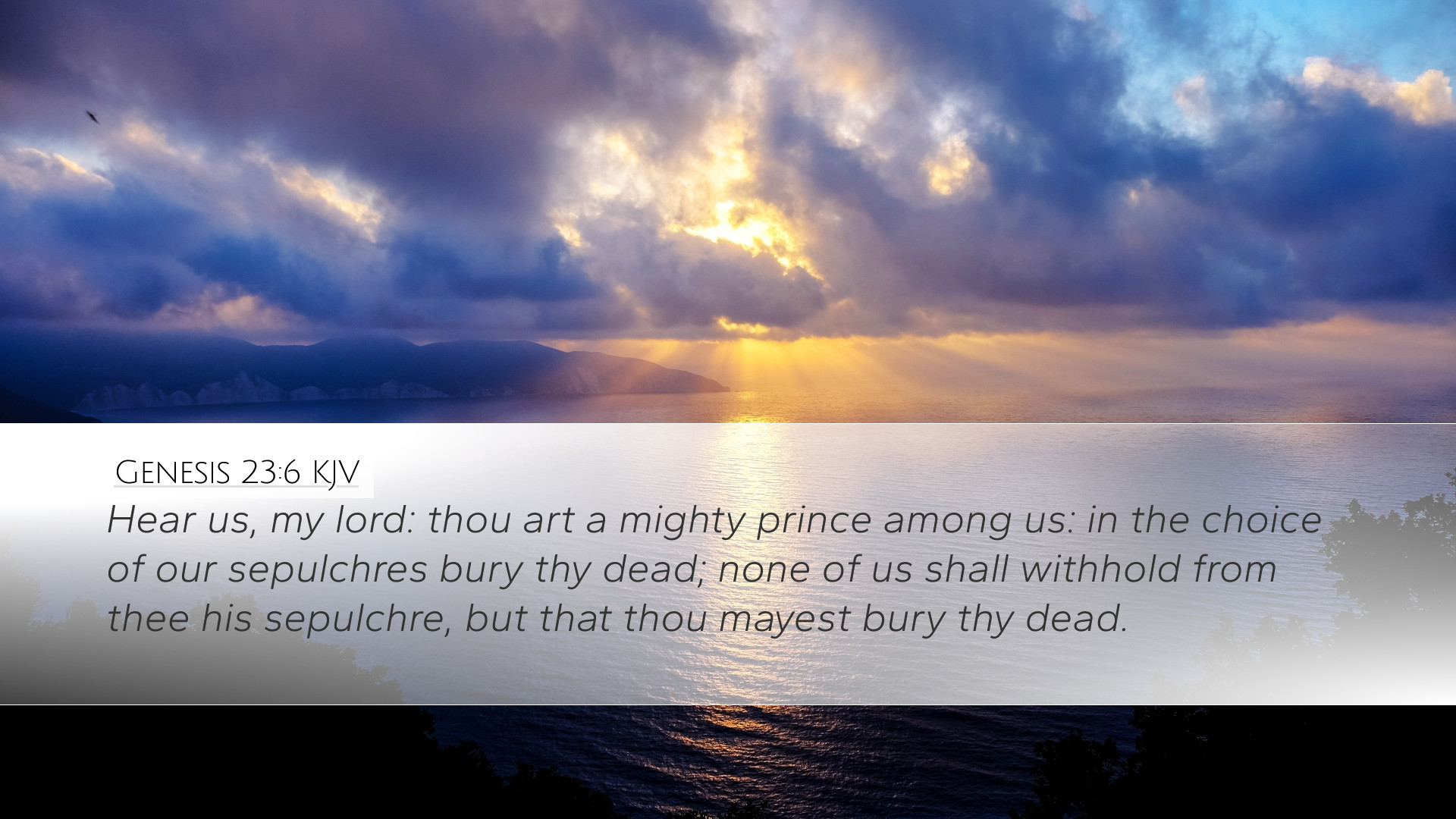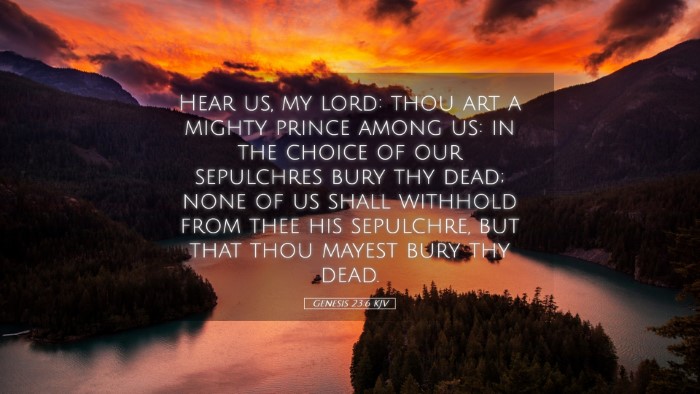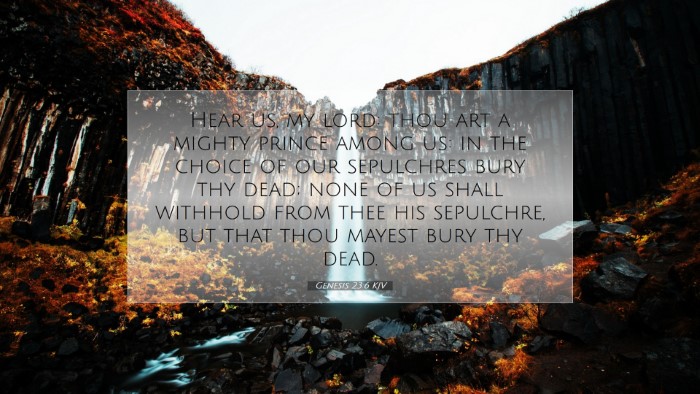Commentary on Genesis 23:6
Verse Text: "Hear us, my lord: thou art a mighty prince among us: in the choice of our sepulchres bury thy dead; none of us shall withhold from thee his sepulchre, but that thou mayest bury thy dead."
Contextual Background
The passage under consideration is situated in a narrative that addresses the death of Sarah, Abraham's wife. In this context, Abraham seeks to secure a burial site. This inquiry not only reveals the deep personal loss Abraham experiences but also highlights the social and cultural practices regarding burial in ancient Near Eastern societies.
Exegetical Insights
- Respect and Acknowledgment: The phrase "thou art a mighty prince among us" indicates the respect that Abraham commanded among the Hittites. This title signifies his status not just as a wealthy man, but as one whose integrity and piety distinguished him in a foreign land.
- Community Response: The offer from the Hittites emphasizes their willingness to provide burial sites, which reflects cultural norms where community involvement in death rites is crucial.
- Choice of Sepulchres: The statement regarding "the choice of our sepulchres" underscores the importance of location in burial practices. Sepulchres not only served a physical purpose but carried cultural significance, often tied to identity and ancestral lineage.
Theological Implications
- Divine Promise and Legacy: Abraham's need for a burial site can be seen as an intersection between his faith in God's promises and the present reality of life and death. The land he desires to acquire foreshadows the eventual possession of Canaan, suggesting that his faith transcends immediate circumstances.
- Hope in Death: Abraham’s actions reflect a hope in God's promises even in the context of mortality. The careful thought he puts into securing a burial plot indicates a deep respect for life, death, and the covenantal relationship he has with God.
- Foreshadowing of Christ: Abraham's provision for Sarah can also be interpreted in light of the gospel—they both anticipate a resurrection to come, serving as reminders of the ultimate hope found in Christ’s victory over death.
Commentary from Public Domain Sources
Matthew Henry's Commentary
Henry emphasizes the providence surrounding Abraham's acquisition of a burial place, noting that even in sorrow, God provides for His faithful. He cites that Abraham sought a permanent resting place, rather than a temporary solution, highlighting the importance of being in the land that was promised to him.
Albert Barnes' Notes
Barnes elaborates on the societal norms regarding burial and cultural acknowledgment of Abraham’s position. He interprets the Hittites' eagerness to provide services as indicative of Abraham’s influence, but also as a manifestation of respect rooted in shared values regarding death. Barnes notes that this was not just a matter of land acquisition but was steeped in social ties and mutual respect.
Adam Clarke's Commentary
Clarke draws attention to the respectful title used for Abraham, suggesting it is a type of currency among the Hittites. He proposes that this event exemplifies the nature of human interactions in matters of life, death, and land, and speaks to the universal need for dignity in burial practices.
Practical Applications
- Honoring the Dead: The request Abraham makes serves as a lesson in our own handling of death and mourning. It illuminates the need for dignity, respect, and proper arrangements for our loved ones.
- Faith in God's Promises: Just as Abraham’s actions were rooted in the conviction of God’s promises, believers today are called to embody a faith that anticipates God’s continual provision and guidance, even amid life's losses.
- Community Engagement: Abraham’s respectful approach can inspire leaders and individuals to engage their communities with humility and grace when navigating sensitive issues related to death, burial, and memorials.
Conclusion
Genesis 23:6 encapsulates profound themes of respect, community, and faith. As Abraham navigates the complexities of death and property within a foreign culture, his actions reveal deep theological truths about our relationship with God’s promises and the dignity afforded to each life. Through insights provided by various public domain commentaries, we gain a richer understanding of this pivotal moment in the life of one of the Bible's most significant figures.


